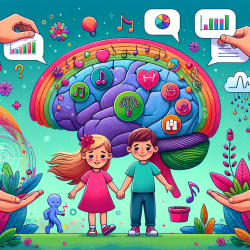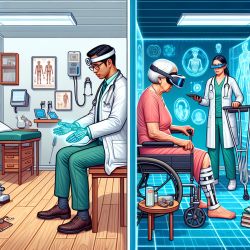Introduction
In the ever-evolving field of speech-language pathology, practitioners are continuously seeking innovative approaches to enhance cognitive and communicative outcomes for children. A groundbreaking study, "Effects of Lifelong Musicianship on White Matter Integrity and Cognitive Brain Reserve," offers compelling insights into how lifelong musicianship can bolster brain health and cognitive reserve, providing a potential avenue for improved therapeutic strategies.
The Power of Musicianship
Musicianship is not merely an artistic pursuit; it is a complex sensory-motor activity that engages multiple brain regions. The study highlights that lifelong musicians exhibit higher fractional anisotropy, a marker of white matter integrity, in specific brain tracts. This enhanced integrity is observed in the bilateral superior longitudinal fasciculi and bilateral uncinate fasciculi, areas crucial for language and cognitive processing.
Implications for Speech-Language Pathologists
For speech-language pathologists, these findings underscore the potential of incorporating music-based interventions into therapy. Here’s how practitioners can leverage this research:
- Music Therapy Integration: Introduce music-based activities that stimulate auditory and motor pathways, potentially enhancing neural plasticity and cognitive reserve.
- Customized Interventions: Tailor interventions to include musical elements that align with a child’s interests, thereby increasing engagement and efficacy.
- Collaborative Approaches: Work with music therapists to design comprehensive programs that address both linguistic and cognitive goals.
Encouraging Further Research
While the study provides a robust foundation, further research is essential to explore the nuances of how musicianship influences brain development and cognitive reserve. Practitioners are encouraged to engage in collaborative research efforts to expand our understanding and application of these findings.
Conclusion
The intersection of music and cognitive science offers promising pathways for enhancing therapeutic outcomes in speech-language pathology. By integrating music into therapeutic practices, we can potentially foster better cognitive resilience and communicative abilities in children.
To read the original research paper, please follow this link: Effects of Lifelong Musicianship on White Matter Integrity and Cognitive Brain Reserve.










